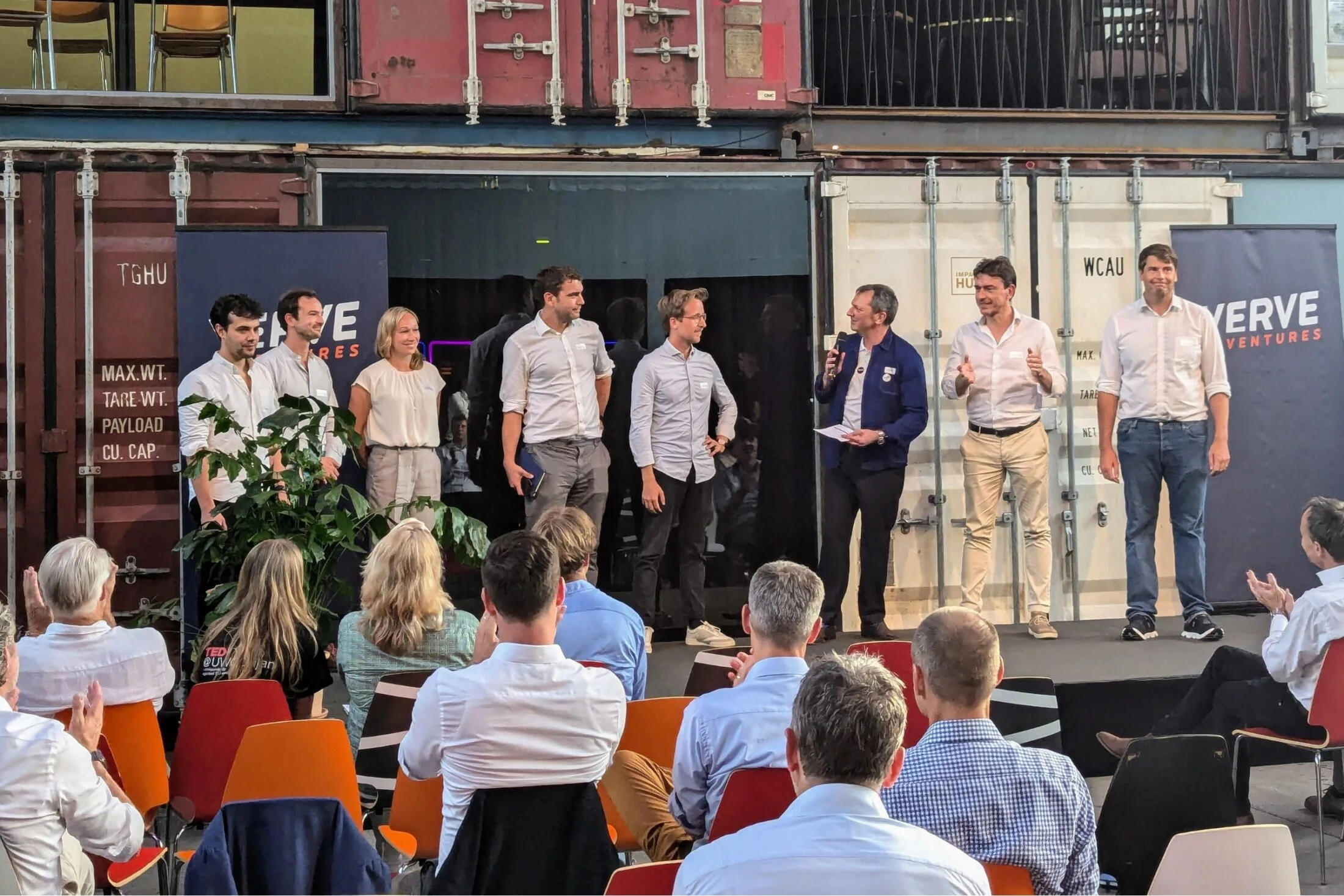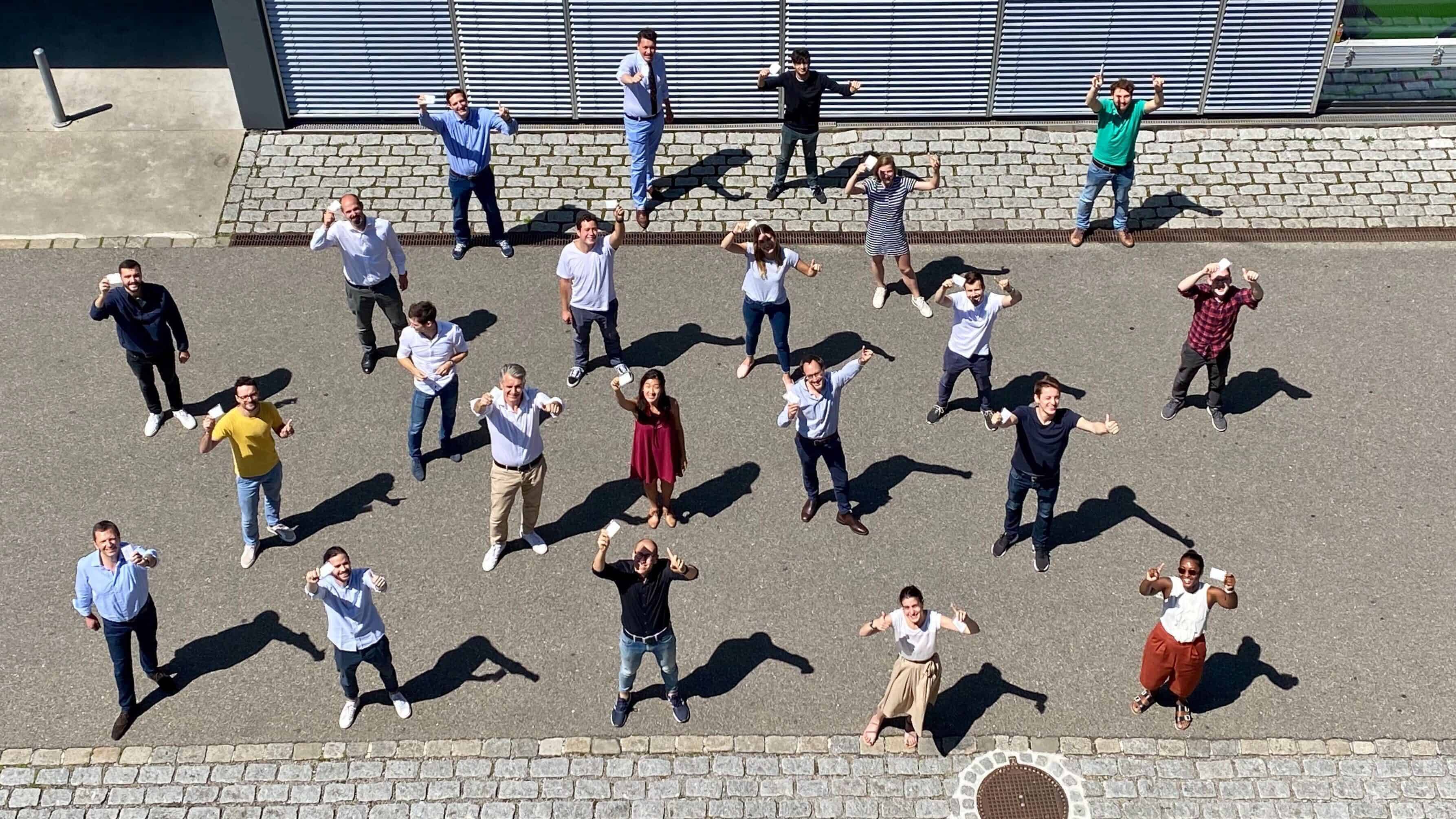In this interview, experienced business angel Balz Roth talks about the difficulties startups face right now and harsh terms in new financing rounds. But as a chairman of Verve Ventures portfolio company ActLight, he also has good news.

Chairman of the Board, ActLight
Balz Roth is a professional board member, business angel, innovation consultant and startup coach at Innosuisse. He was an investor and board member of Lemoptix, which was sold to Intel.
How does the COVID-19 pandemic affect exit opportunities for startups?
The M&A market has fallen off the cliff, so to speak. For the next three to six months, maybe even longer, there will be very little transactions. That’s what I hear from my M&A contacts in the Valley. Companies that are potential buyers have to assess their own situation and how they are impacted first before they go out and buy new companies again. Some might say that there are opportunities out there right now, it’s a buyer’s market, but most of them will just wait for the storm to pass. The only exceptions may be acquiring companies with a very strong balance sheet that find attractive, not too expensive takeover targets who have developed technologies fitting exactly in their technology roadmap.
And the impact on doing financing rounds for startups?
It’s difficult at the moment. I’ve seen term sheets with very brutal terms.
“I’ve seen term sheets with very brutal terms.”
You mean, that valuations have come down?
They might, but usually, the valuation isn’t the issue. Nobody wants to signal to the outside world that a company is in bad shape, so often the valuations are just what they were in the last round. Of course, there are down rounds as well, but what I see more often are so-called liquidation preferences. These terms stipulate that investors in this new round get 2, 3, or 4 times their newly invested money before anybody else, including former shareholders and founders, see some money.
And startups accept these terms?
Sometimes you have to. In a situation like we’re in now, people are reluctant to invest. They want to protect themselves and keep their dry powder. So it’s important to offer terms that push existing shareholders to join the new financing round. This is usually only the case if it really hurts if you don’t participate. It’s called “pay to play”. But these things need to be negotiated very carefully so that nobody gets profoundly angry. If existing investors or particularly founders are not able to join the round, thereby get massively diluted, and hold a grudge, you’re in for future trouble. Founders lose their drive and interest and shareholders make your life complicated when you need their support, for example by signing shareholders agreement or in case of an exit. But in the end, there is no law stating that you can’t give the new investors 3 times liquidation preference. Some say it’s insolent. Well, if you find the money for better terms, take it. But now, it’s hard.
And if you don’t have much liquidity, you also don’t have much time to shop around.
The lack of liquidity is a big problem for many. The coronavirus is taking a toll on those companies first that were already in a shaky situation. What every startup needs to do right now is reducing the burn rate, fast, and radically. This means prioritizing and focusing and if it means letting people go, do it! The sooner the better. The problem is that many young entrepreneurs are fair-weather captains. Everything they know is a benign economic environment, they think leading a startup is cool and that we’re all in this together. Some of them are in a shock-induced paralysis now. They don’t know how to handle a crisis. That’s when board leadership comes into play. This is the moment when you have to support the founders and management team, particularly in setting priorities, where to focus and what to stop doing immediately.
What can they actually do?
They need to gain time and preserve cash. And this means that they have to reach out to investors, to clients, and to suppliers. They need to show leadership and negotiate hard. You call your suppliers and you tell them that you can’t pay your bills right now, that you want to negotiate partial payments. On the other side, you contact your clients and you offer them discounts for cash advances. If you have clients that don’t pay their bills, and you do nothing about it, it will kill you. Getting them to pay won’t happen if you let an intern write a reminder email once a week. You, as the CEO, have to get on the phone and call them, again and again, negotiate a solution. You need to insist – it’s the screaming wheel that gets the oil. Threatening them with debt enforcement won’t get you anywhere. You have to find a solution and its hard and time-consuming. Most likely, something most first-time founders have never done before.
What is the role of the board members in times of crisis?
As mentioned before, helping to set priorities and tell them what not to do is key. And sure, you need to be well informed about the financial situation of the startup. You can’t just lean back and think “they’ll figure it out eventually”. If the startup gets into a situation of over-indebtedness and doesn’t pay its social pension contributions, for example, you’ll get into personal financial liability. So keep it under control. The important to remember is that nobody has liability for wrong business decisions, but you might be liable for neglect and gross neglect!
Let’s finish this interview on a more positive note and talk about innovation, which is still happening despite the crisis. You’re also a board member of Actlight, one of Verve Ventures’ portfolio companies. Recently, ActLight announced that it made a technological breakthrough. What is it about?
Actlight is developing digital photodiodes. Photodiodes that turn light into electric current are nothing new, they’ve been around for more than 50 years and you find them in many applications such as the digital cameras in smartphones. The problem with these analog diodes is that you need to amplify the signal with an analog amplifier, which results in a bad signal to noise ratio. Weak signals get lost, strong signals oversaturate the amplifier. Actlights sensors, on the other hand, don’t need amplification and therefore have a far wider sensitivity range. Instead of an analog signal which means higher voltage if there is more light, the ActLight sensor gives an immediate time signal without any analog amplification.
“We developed application-specific sensors for heart rate monitoring and other vital signs.”
It works a bit like measuring the time it takes for raindrops to fill a bucket. More rain means it fills up faster. With that time measurement, you can calculate the amount of rain. Instead of raindrops, we do it with photons, the particles light is made of. On this fundamental architecture, we developed application-specific sensors for heart rate monitoring and other vital signs, and so-called Time of Flight-sensors for distance measuring. These ToF sensors can be used in mobile phones or autonomous driving. At the beginning of this year, we have shown that our sensors are working perfectly in a matrix, an array configuration of 32x 64 pixels. There is no cross-talk between the individual sensors or pixels.
Why is that important?
Because when you pack sensors closely together, there is a risk that one sensor can affect the others nearby and the matrix doesn’t perform as planned. This is called crosstalk. We’ve shown that the matrix ActLight has developed has basically no crosstalk. This paves the way for our photodiodes to be used in cameras and 3D sensors, for autonomous driving, robots, drones, any application that needs spacial awareness.
Are there any products already on the market that use this technology?
One company is manufacturing sensors based on our technology that will soon be used for vital sign monitoring in an in-ear device. Other projects are progressing, and we expect commercialization soon. We’re confident that many other applications will soon follow.
Written by
Investors

Our sophisticated investors include visionary family offices, leading wealth managers, institutions, founders, and senior executives. These individuals and organizations are all committed to shaping the next generation of innovation.
More News
“This breakthrough gives hope to many”
For the first time in history, patients with complete spinal cord injury were able to walk again. ONWARD will make this technology available to patients in the coming years. CEO Dave Marver explains what this scientific achievement means for the company.
Supercharging our startups
It has been more than half a year since we established our Portfolio Success Team to help our portfolio companies. We are happy to share a review of what has happened so far, what were some key results and what is coming next for the second half of 2020.
Can machines pick startups?
Quantitative funds trade assets based on patterns found in data. Some VCs are excited about this idea - but are such approaches viable for venture investing?


